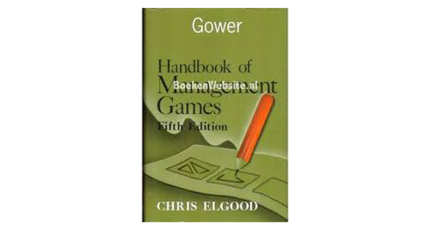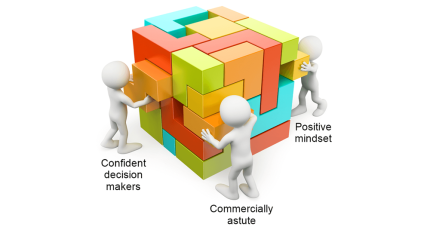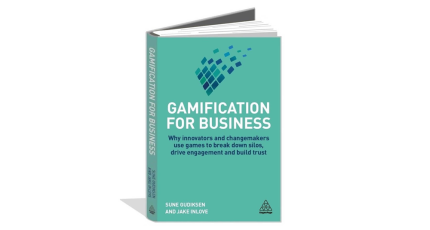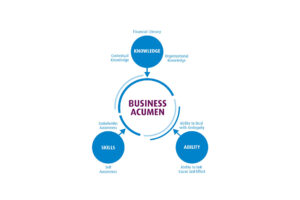Empowering Growth, Fueling Success
Proven learning strategies to boost your competitive advantage and deliver winning commercial outcomes.
Are your decision-makers commercially aware? Do they understand your organisation’s strategic goals? Do they possess the skills to build, manage and motivate a high-performing workforce to deliver your desired outcomes?
Elgood Effective Learning exists to provide the teams within businesses, academic institutions and public sector organisations with the skills, understanding and knowledge to maximise their profitability, enhance their services and control their costs.
Business Acumen Skill
Business acumen is a combination of skill and knowledge informed by experience. No single aspect of managerial skill is more important.
Are the people working in your organisation commercially aware and do they know what drives results? Do they fully understand how their decisions impact on the long-term success of the organisation? Our business simulation games:
- Unlock the potential of people’s innate business acumen skill
- Increase knowledge and commercial awareness within your teams
- Develop individual and collective confidence in a relatively risk-free enjoyable environment.
If any of the above resonates with you, our business acumen skill training will help to deliver your desired outcomes.
Communicating Business Strategy
Do you have a strategy to move your organisation forwards? Are your middle managers, and their teams, being kept in the loop?
Business strategy games are a highly effective way to communicate your strategy by providing the opportunity for your teams, through engagement and collaboration, to fully understand it and how to implement it. They:
- Develop the helicopter thinking required to move beyond day-to-day tasks and to see the organisation as a whole
- Translate strategies into actionable plans, breaking down high-level objectives into tasks that teams can embrace
- Enable your teams to work together to align their actions to achieve your overall goals
If you want to build an aligned, motivated and high-performing workforce our business strategy games can help.
Building Management Capability
Do you want a highly capable management team that sets your organisation apart?
While some people possess innate leadership qualities, most, along with the other essential management skills, develop them through learning. The use of management games and simulations is a results rich way of delivering those lessons. Management games:
- Lead to increased engagement and retention of information
- Enable managers and supervisors to develop their knowledge and skills in a safe environment
- Build capabilities in leadership, financial literacy, strategic planning, and sound decision-making.
Using business simulations and games to develop your management team’s capability will help you to achieve your organisation’s goals.
Frequently Asked Questions
What is Experiential Learning?
This refers to learning that an individual derives from experience. The term comes from the book Experiential Learning: experience as the source of learning and development published by David A Kolb (Englewood Cliffs, Prentice Hall, 1984).
In the book Kolb explained how a person learns through a cycle of discovery and experience. The Kolb learning cycle has four stages.

In situations where it is difficult for people to gain live experience the use of games and simulations can be used to mimic reality. The activity provides the active experimentation and concrete experience and the individual can then learn through reflective observation and abstract conceptualisation with the potential of going around the circle again to test out their new-found knowledge.
Retention rates from activities that incorporate experiential methods result in significantly higher retention rates – 75% from practice by doing in comparison to 5% from a lecture.
Research by National Training Laborotries.
How can a simulation game help my business?
Targeted business simulation games are designed to improve knowledge and develop understanding about the business, which in turn leads to more efficient and effective organisations. For your staff members to be effective they need to understand how your business works, what it takes for the organisation to be successful and, crucially, what contribution they need to make to ensure it is operating effectively and efficiently.
A business simulation is one of the most effective learning processes you can employ. The experience develops participants’ business acumen, helping them to understand what the extent of their contribution is, and raising awareness of how their decisions, behaviour and attitudes affect their colleagues. They will learn to make better decisions for the organisation and form better relationships, giving you a more effective, motivated and knowledgeable workforce.
How can simulation games enhance my training event?
We gather feedback from every management game and business simulation we design and run. Here’s what our clients say:
- Active learning keeps our people involved in the whole process.
- Simulations draw out everyone’s strengths across the group.
- Learning by experience is fun and interactive, engaging all the senses.
- Role-playing fosters negotiation and problem-solving skills.
- Business-specific simulations add real relevance to our events.
- Our participants retain new information better.
“the increased retention over time of learning appears to be one of the most consistent findings within the research into the potential of games for learning”
Simon Egenfeldt-Nielsen of the University of Copenhagen
What is commercial acumen?
Commercial acumen is a subset of business acumen. Business acumen is a combination of knowledge and skill informed by experience: knowledge about key business issues, the skill to apply that knowledge, and the confidence to take action informed by past experiences. Commercial acumen focusses on a smaller number of areas primarily the market in which the organisation operates and the customers it serves. What do they want? It includes knowing something about the competitors so that you can offer potential customers what they want as efficiently and cost effectively as possible. Commercial acumen does not necessarily include the strategic aspects of the company, it’s vison and expansion plans. If focusses more on the actions required today and tomorrow to ensure the organisation is commercially successful.
Many organisations will use the words acumen and awareness interchangeably. We prefer the word acumen because it implies the ability to take action. A person can be aware of a situation but if they are unable to take action then the knowledge is useless.
We hope this answer also helps with the question what is commercial awareness?
Read our guide ‘Business Acumen or Commercial Acumen – What’s the Difference?‘
What is business acumen?
We define Business Acumen as “The ability to take a ‘big picture’ view of a situation, to weigh it up quickly, make logical, sound decisions confidently, and influence others to agree with you in order to have a positive impact towards achieving the objectives of the organisation.” It is a combination of knowledge and skill informed by experience: knowledge about key business issues, the skill to apply that knowledge, and the confidence to take action informed by past experience.
For more information about Business Acumen please read our white papers Business Acumen: What is it? Who needs it? How do you acquire it? and Business Acumen: the key to competitive advantage in uncertain times.
Many organisations will use the words acumen and awareness interchangeably. We prefer the word acumen because it implies the ability to take action. A person can be aware of a situation but if they are unable to take action then the knowledge is useless.
We hope this answer also helps with the question what is business awareness?
What is a business strategy?
A strategy is the pattern of activities that need to be followed in pursuit of a long-term objective. When applied to a business it refers specifically to the actions that will be required by staff, at all levels, to ensure the business achieves the stated goals. The goals may be embodied in a purpose, mission or vision statement or all three.
What is a business strategy game?
A business game is a method through which individuals learn about how a business or organisation works. The content of a business strategy game is a business strategy. The game could involve a start-up situation where participants have to create and then implement their strategy reacting to competitor activity as they progress or it could involve taking over an existing business and seeking to implement a strategy that has already been decided. For example, where a head office or regional unit has decided on the overarching strategy and smaller business units have to implement this in their own environments.
In all cases the game element allows participants to play out various different scenarios and to learn about the potential outcomes in a safe environment.
Why is business acumen important?
Organisations populated by individuals with strong business acumen will have a shared understanding of the opportunities and threats facing the organisation and will be able to come up with a logical and coordinated response. Every individual’s actions and decisions will be strategically aligned with those of the organisation.
Individuals are able to make appropriate decisions because:
- They see the bigger picture and understand how each part of the organisation fits together.
- They have the skills to deal with complexity and uncertainty. They can process the available relevant information and have the confidence to reach a conclusion.
Individuals who possess business acumen will take actions for the benefit of the organisation. For example:
- Decisions will be made to ensure the best return for any effort expended. This might be a financial investment or the application of man hours to a problem. These actions will influence top-line revenue growth.
- Individuals will have the knowledge to be able to bridge the communication gap within the organisation by translating the decisions made at higher levels into understandable policies and procedures for their teams.
- When faced with a complex issue where no solution appears ideal, they will have the skill to analyse the information they do have, the confidence to make rational assumptions to fill in the gaps, and the courage to make a decision. As such the organisation will avoid long periods of inactivity and uncertainty and will have the chance to grab future opportunities – maybe before the competitors!
For more information about Business Acumen please read our white papers Business Acumen: What is it? Who needs it? How do you acquire it? and Business Acumen: the key to competitive advantage in uncertain times.
Who needs business acumen?
Business acumen is essential for all senior and middle managers – irrespective of whether they work for a commercial organisation, a Government organisation or in the third sector. The argument is made succinctly by Ram Charan.
“No single aspect of managerial skill is more important. If the management’s assessment of the external landscape, how patterns of converging and diverging trends fit together, is inaccurate, the company’s strategic positioning will be wrong. Decision makers will be tempted to develop the wrong capabilities, hire the wrong people, or enter the wrong markets.”
We believe there is a strong case for all members of an organisation to have a level of knowledge and skill which enables them to take appropriate action. This means that individuals need to be given the opportunity to experience situations which might be outside their immediate sphere of influence, as their actions will ultimately impact on the organisation at some level.
Ram Charan – Sharpening your business acumen
Products our clients use time after time
Year after year our clients within businesses, academic institutions and public sector organisations choose these management games and business simulations to train and develop their teams because they deliver on multiple objectives including business strategy, finance, developing interpersonal skills and interdepartmental relationships.
Elgood Effective Learning - for improved performance - call us today on 0118 982 1115
Insights
White papers
More and more businesses are turning to business games and simulations to...
In this white paper we explore three universal challenges every business faces...
The financial crisis prompted boardrooms to reevaluate their view of reputation and...
This White Paper discusses Ethics in Business Decision Making. An organisation is...
Organisational change is ubiquitous. According to the CIPD, “All organisations are in...








